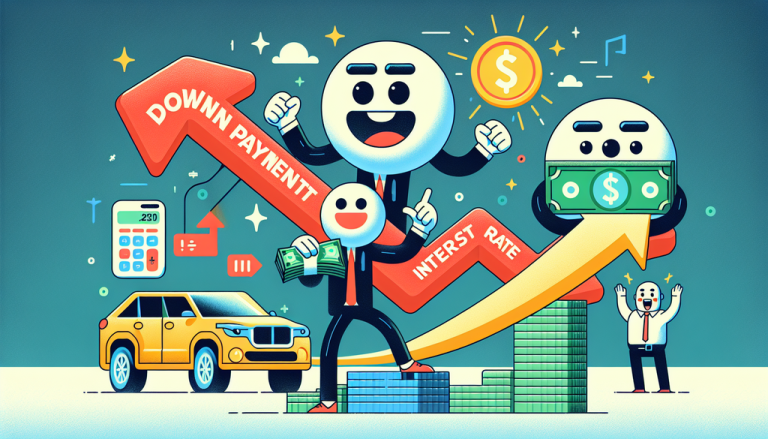Shopping for a new car feels like navigating a financial maze. As someone who’s been through multiple car purchases, I understand the dilemma of weighing down payments against interest rates.
The Financial Crossroads: Down Payment vs. Interest Rate
When you’re standing at the dealership, two critical financial factors can make or break your car buying experience: the down payment and the interest rate. But which one truly matters more?
Breaking Down the Numbers
| Factor | Impact | Long-Term Savings |
|---|---|---|
| Large Down Payment | Reduces initial loan amount | Lower monthly payments |
| Low Interest Rate | Reduces total borrowing cost | Significant long-term savings |
Down Payment: Your Initial Financial Shield
A substantial down payment immediately reduces your loan principal. By putting more money upfront, you’re essentially decreasing your financial risk and monthly burden.
Pro tip: Aim for a down payment of 20% or higher. This not only reduces your loan amount but can also help you avoid private mortgage insurance.
Interest Rate: The Silent Budget Killer
While a big down payment helps, a low interest rate can save you thousands over your loan’s lifetime. Even a 1-2% difference can translate to substantial savings.
“A fraction of a percentage point can mean the difference between a manageable loan and a financial strain.” – Financial Expert
Real-World Scenario
Consider a $30,000 car loan over 5 years:
- 5% interest rate: Total interest paid ≈ $3,968
- 3% interest rate: Total interest paid ≈ $2,364
The Ideal Strategy
The best approach? Combine both. A solid down payment paired with a low interest rate creates the ultimate car buying strategy.
Quick Checklist
- Check credit score before applying
- Save for a substantial down payment
- Shop around for the best interest rates
- Consider pre-approval
Remember, every car buyer’s situation is unique. What works for one might not work for another. Always calculate your specific scenario and consult financial advisors.



